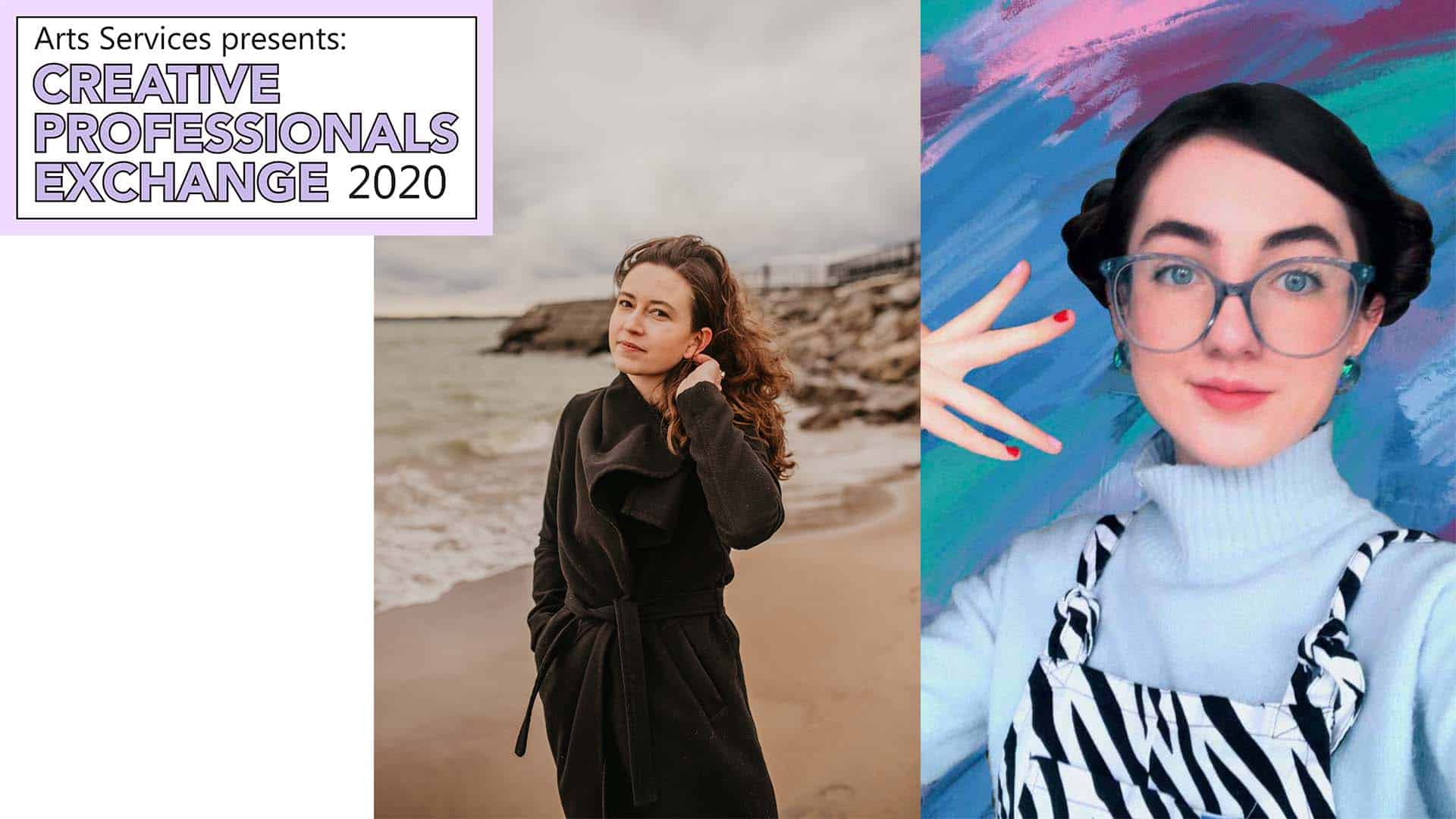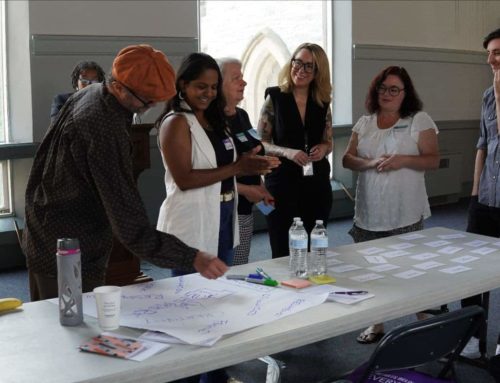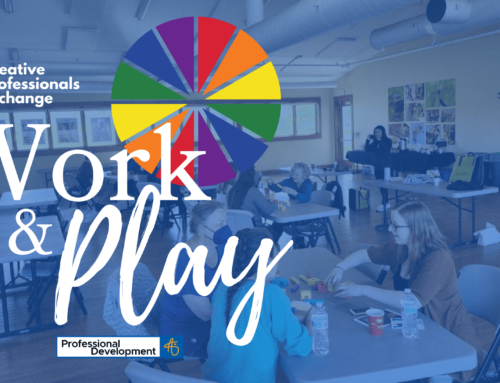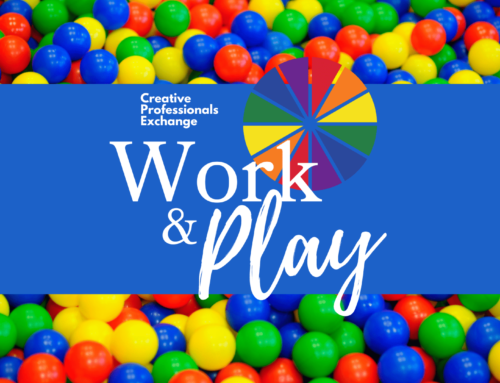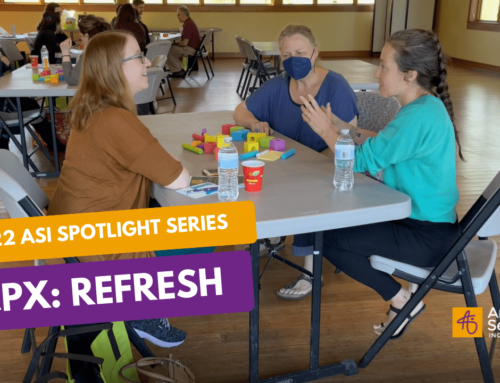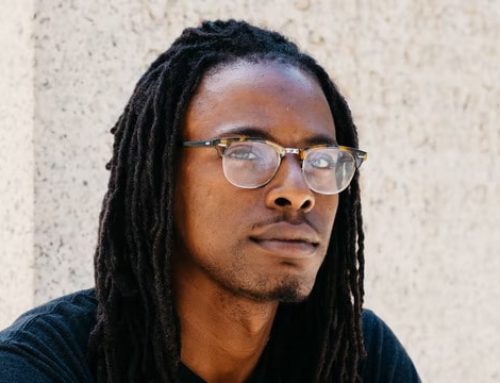Intersectional Environmentalism, Art as Activism, and Fast Fashion
Saturday, November 7, 2020 at 12:15 pm
With Alexis Oltmer and Julie Klein
Oltmer and Klien support the idea that survival is dependent on the habitability of our planet and the justice we build and create in our societies for all, not just the few. We must recognize, rethink, support, organize and demand action from corporations to create a positive impact on the sustainability and justice of life on Earth. This presentation will cover intersectional environmentalism and art, Capitalocene, and the overwhelming contribution fast fashion has on global warming and the exploitation of the health of humans and our planet’s ecosystems.
Alexis Oltmer
Alexis Oltmer is a conceptual artist creating in Buffalo, NY. Her work is focused on the Capitalocene and intersectional environmentalism. She researches injustice and behavioral patterns such as consumption culture created by the industrial revolution to create bodies of work which advocate for people and planet over profit.
Oltmer’s work is influenced by assemblage, found objects, typology and chance. Projects she creates heavily rely on repetition, research, and guidelines regarding how subjects are photographed over a period of time to create a story. She believes art is a vehicle to provoke, inspire and empower individuals to advocate for positive social change both locally and nationally.
Her current body of work For Future Generations: A plastic pollution study of Lake Erie was created from 3 years of beach clean ups at the Erie Basin Marina. While creating the body of work Oltmer began a community beach clean up program called #PlasticFreeBuffalo to enthuse and educate members of the community on fresh water plastic pollution, civic duty and art as activism. In January 2020 she exhibited For Future Generations at The CEPA Gallery in Buffalo NY.
Her hometown has had an enormous impact on her career as an environmental advocate and artist. IBM which was founded in Endicott NY, reported a spill of 4,100 gallons of the solvent TCA (1,1,1-trichloroethane, also known as methyl chloroform). This known spill resulted in the contamination of Endicott’s freshwater aquifer. Over the years the contaminants migrated into neighborhoods, schools and business in the area. She grew up hearing about town halls and the constant fight locals endured against IBM & the closing of buildings and areas due to unsafe situations. To this day Endicott NY remains as an active class 2 Superfund site listed by the EPA, as the hazardous waste constitutes a significant threat to the public health and environment.
Alexis has exhibited at The CEPA Gallery and has shown her work at The Burchfield Penney, Hallwalls, The Big Orbit Gallery, and Rustbelt books. Her documentary series which followed protests in the City of Buffalo from 2016-17 titled My Fellow Americas was published monthly in the The Public. Oltmer was awarded the 2017 Oseroff Photographic Memorial and is a 2020 recipient of the Global Warming Art Project Grant through Arts Services Initiative of Western New York.
Julie Klein
Julie Klein is a student as well as an artist and designer from Buffalo, NY. Her work and studies focus on sustainable design, the fashion industries’ impact on the environment and people, and textile waste. She is currently attending FIT for her Associates in Communications Design Foundations, and she will receive her Bachelor of Science in Fashion & Textile Technology with a Concentration in Apparel Design from Buffalo State College in the spring of 2021.
Julie works with textiles, sewing, and mixed media. Her illustrative work and paintings focus on nature and people, while her designs and garments are centered around repurposing materials and creating a contrast between geometric man-made objects and organic natural elements.
Her senior collection, titled: WISH YOU CARED, Buffalo NY, was centered around plastic pollution in the great lakes and Niagara river. Julie utilized plastic from local beaches, as well as olf boat sails, fabric scraps, netting, and boating lines to draw attention to the concept of repurposing and repairing materials rather than tossing them away. During the creation of this collection, Julie researched and wrote a Capstone Project on Sustainability in Fashion and its Impact on Communities, highlighting not only the environmental impact of fashion but the ethical impact on workers, communities, and consumers.
Growing up on the Niagara River, Julie has spent most of her life swimming and playing in the water, collecting stones and climbing trees surrounded by washed-up plastic bottles and tires. As well as traveling to National Parks and holding a deep appreciation for conservation, this influenced Julie to pull environmental issues into her work as an artist. As a Designer, Julie researches and designs around sustainability and ethical impact. She hopes to pursue a master’s in Sustainability or Supply Chain Management.
Julie currently works for the Grand Island Recreation Department, running and teaching at a non-profit art studio for local teens, as well as supervising Children’s art programs. Titled the Nike Art Studio, this space is located at the Nike Base Park on Grand Island, NY. Julie has worked here since 2017 when she helped start the studio with her high school art club and the town of Grand Island, and it has since grown and expanded its programs and events.

